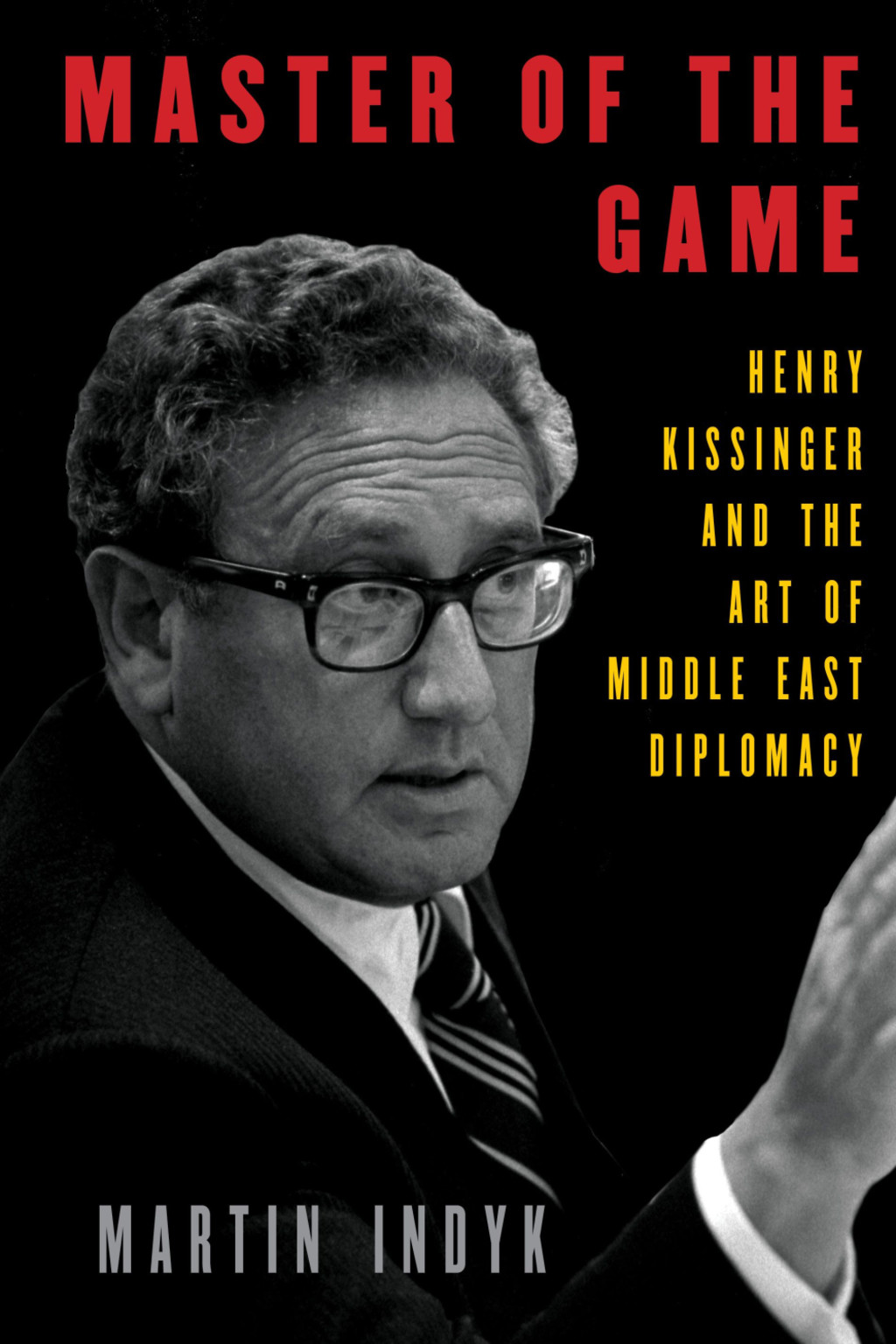Master of the Game
Henry Kissinger and the Art of Middle East Diplomacy
A perceptive and provocative history of Henry Kissinger’s diplomatic negotiations in the Middle East that illuminates the unique challenges and barriers Kissinger and his successors have faced in their attempts to broker peace between Israel and its Arab neighbors.

- Publisher
- Alfred A. Knopf
- Release Date
- October 2021
- Pages
- 686
- ISBN
- 978-1-101-94754-8
More than twenty years have elapsed since the United States last brokered a peace agreement between the Israelis and Palestinians. In that time, three presidents have tried and failed. Martin Indyk—a former U.S. ambassador to Israel and special envoy for the Israeli-Palestinian negotiations in 2013—has experienced these political frustrations and disappointments firsthand.
Now, in an attempt to understand the arc of U.S. diplomatic influence in the Middle East, he returns to the origins of U.S.-led peace efforts and to the man who created the Middle East peace process—Henry Kissinger. Based on newly available documents from U.S. and Israeli archives, extensive interviews with Kissinger, and Indyk’s own interactions with some of the main players, the author takes readers inside the negotiations. Here is a roster of larger-than-life characters—Anwar Sadat, Golda Meir, Moshe Dayan, Yitzhak Rabin, Hafez al-Assad, and Kissinger himself.
Indyk’s account is that of both a historian poring over the records of these events as well as an inside player seeking to glean lessons for Middle East peacemaking. He makes clear that understanding Kissinger’s design for Middle East peacemaking is key to comprehending how to—and how not to—make peace.
Reviews and Endorsements
Indyk’s reflective review of Kissinger’s Realpolitik negotiations can be a model for understanding how to subdue rather than settle international negotiations. Essential reading.
Library Journal (starred review)
Drawing on his firsthand acquaintance with Middle East diplomacy and many of the principals, including Israeli prime minister Yitzhak Rabin and Jordan’s King Hussein, Indyk paints a vivid portrait of Kissinger as visionary statesman, Machiavellian operator, and occasional bumbler as he cajoles, arm-twists, and haggles over demarcation lines and diplomatic phraseology. This fascinating study illuminates both the cold logic of Kissingerian statecraft and the human factors that muddled it.
Publishers Weekly (starred review)
An exhaustive study . . . A project worthy of Indyk’s painstaking, always lucid analysis . . . [Master of the Game is] of considerable interest to students of geopolitics, realpolitik, and the state of the world today.
Kirkus Reviews (starred review)
This is an extraordinary work of diplomatic history. It is at once a brilliant analysis of one of the pivotal moments in America’s involvement with the Middle East and at the same time a wise reflection on the art of statecraft. Martin Indyk is a seasoned diplomat and negotiator. In this book he shows himself also to be a great historian. In a crowded field, this book will stand out for a long time.
Fareed Zakaria, author of Ten Lessons for a Post-Pandemic World
One of America’s premier diplomats and strategic thinkers, Martin Indyk, brings his decades of experience to this lively, engrossing, and eye-opening account of Kissinger’s Middle East diplomacy. This is narrative and analytical history at its finest, admiring but not uncritical of America’s most famous statesman. Master of the Game is must-reading for anyone interested in the most intractable of international problems.
Robert Kagan, author of The Jungle Grows Back: America and Our Imperiled World
This definitive history of Henry Kissinger’s Middle East peace process offers a wealth of lessons for today, not only about the challenges in that region but also about the art of diplomacy. With his deep personal experience and his intimate understanding of the colorful players involved, Indyk conveys the drama, dazzling maneuvers, and grand strategic vision that characterized Kissinger’s virtuoso negotiations.
Walter Isaacson, author of The Code Breaker
A noted Middle East peace negotiator in his own right, Martin Indyk excels in this account and interpretation of Henry Kissinger’s Arab-Israeli diplomacy of the 1970s. Indyk is appreciative but discerning. The book is a must read for those interested in Middle Eastern affairs, U.S. foreign policy, and the arts of diplomacy and negotiation.
Itamar Rabinovich, author of Yitzhak Rabin: Soldier, Leader, Statesman
Related Author Publications
Forward
Atlantic
Wall Street Journal
Foreign Affairs